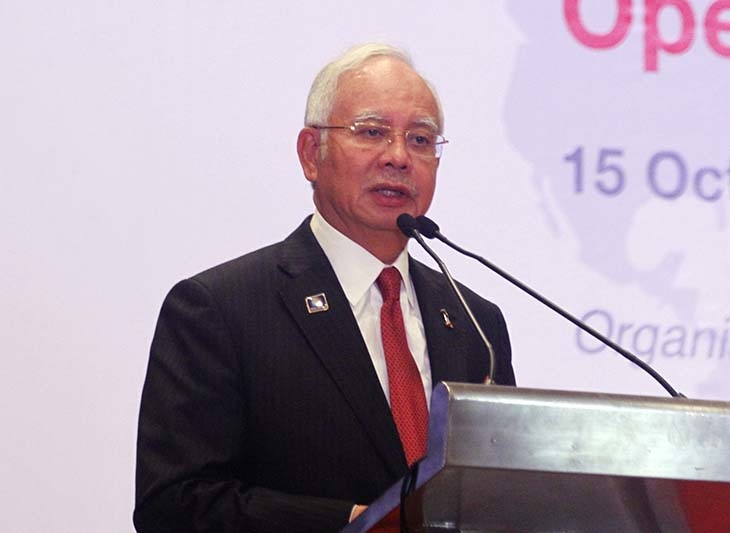Prime Minister Najib: Science Diplomacy Never More Important

Malaysia Prime Minister Dato’ Sri Najib Tun Razak described the urgent need for greater scientific cooperation in the Asia-Pacific to mitigate emerging cross-border threats and move towards greater sustainable, inclusive development in remarks opening a two-day meeting of Chief Science Advisors from APEC member economies in Kuala Lumpur.
Convening under the theme, “Building Foundations for Scientific Advice Towards Inclusive Economies and a Better World,” Prime Minister Najib underscored the importance of integrating science and technology into policymaking among economies in the APEC region. He called upon their scientific and policy communities to deepen engagement to strengthen environmental protection and security for all corners of society, singling out council required to address the haze caused by rampant forest burning that has again engulfed large areas of Southeast Asia.
“My first concern is how can you cope with this, how can you cope and prevent the slash and burn techniques for clearing land for agriculture,” asked Prime Minister Najib. “Secondly, how do you prevent fires on the peat soil, peat land, whether it is deliberate or whether because of the dryness of climate change. I would be very, very interested to know your findings, your advice so that I can raise the matter at the ASEAN Summit and also during APEC,” with APEC Leaders to meet in Manila on 18-19 November to decide the future of regional economic partnership.
“Science diplomacy has never been more important,” underscored Prime Minister Najib. “Many of the defining challenges of the 21st century – most notably climate change, food and water security, energy security, poverty alleviation and health – have scientific dimensions of increasing complexity.”
“Malaysia has been at the forefront of articulating the need for a balance, the right balance, between the environment and development,” Prime Minister Najib explained. “For us, this is the crux of sustainable development—to use and to be stewards of our natural resources to support our economy and to alleviate poverty but without compromising the ability of future generations to do likewise.”
The APEC Chief Science Advisors forum promotes the incorporation of scientific evidence in policy decisions for driving development and growth across APEC economies, and is the only established regional group of its kind in the world. Moving from knowledge and strategic exchanges towards a detailed agenda for addressing unfolding policy priorities is their key focus in Kuala Lumpur.
“The fact is any government requires technological and scientific advice, and this is further amplified in times of crisis and emergencies,” said Prime Minister Najib. “Malaysia Airlines Flight 370 was lost in circumstances that remain shrouded in mystery. The search for that aircraft, however, demonstrated how the response to human tragedy can unite rather than divide, can reinforce cooperation rather than underscore separation.”
“Science and technology has played and will continue to play a prominent role in future climate change-related disaster risk reduction,” added Prime Minister Najib. “Assessments of hazards – their magnitude, timelines and estimated costs – and the technologies or techniques required to prevent or mitigate impacts, will be critical to informed decision-making.”
Optimizing the use of scientific advice in emergency situations in the Asia-Pacific is among the policy angles to be taken forward by Chief Science Advisors. Reporting mechanisms and whole-of-government approaches as well as bringing in private sector expertise into science advisory systems are additional points of emphasis.
“It is heartening to note that science advice to governments has emerged as a discipline in its own right,” exhorted Prime Minister Najib, noting that the Chief Science Advisors forum “marks a turning point in awareness among APEC member economies that robust and credible science has an important place in public policymaking.”
“I look forward to learning the results produced at this meeting, which provides the opportunity to consider issues of common interest and importance to the APEC region,” Prime Minister Najib concluded.
# # #
For further details, please contact:
David Hendrickson +65 9137 3886 at [email protected]
Michael Chapnick +65 9647 4847 at [email protected]
More on APEC meetings, events, projects and publications can be found on www.apec.org. You can also follow APEC on Twitter and join us on Facebook and LinkedIn.

